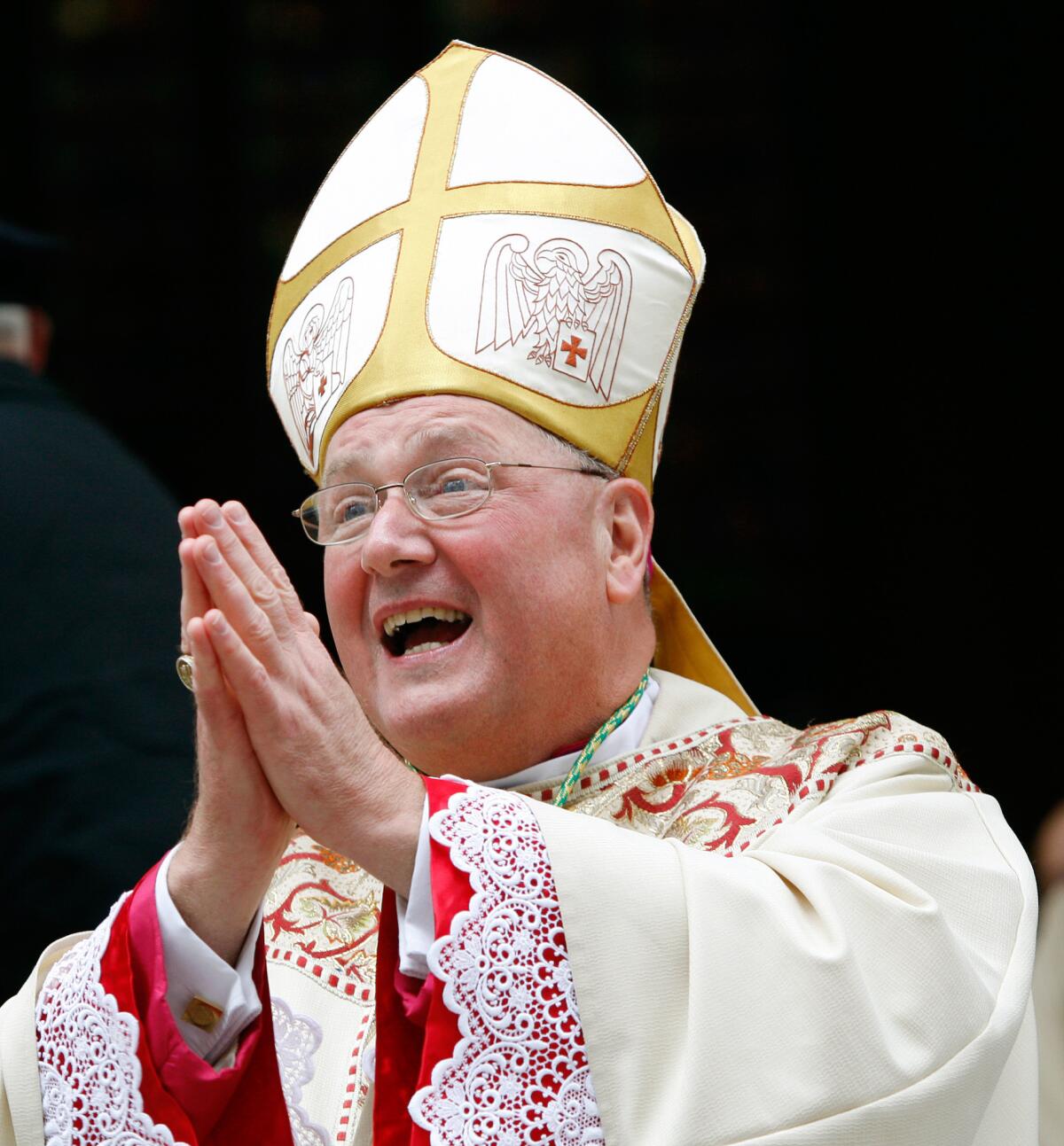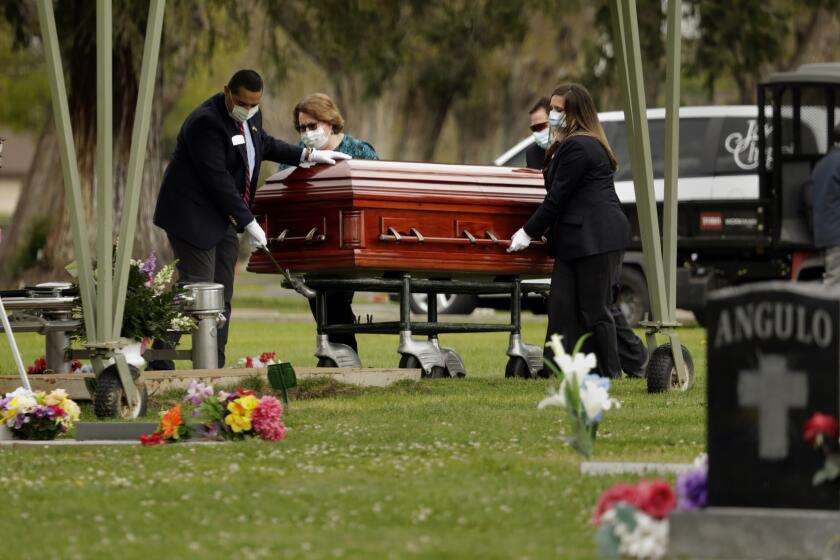Catholic bishops should be wary of seeming to endorse Trump

- Share via
Some leaders of the Roman Catholic Church in the United States have been on the phone with President Trump in recent days. The encounters seem to promise political dividends for the president, and that could be a problem for the church.
On April 17 Trump spoke with leaders of various faiths about when public worship might resume following the restrictions imposed during the COVID-19 pandemic. Among the participants in that call were Archbishop Jose Gomez of Los Angeles, who is the president of the U.S. Conference of Catholic Bishops, and Cardinal Timothy Dolan, the archbishop of New York.
Catholic prelates also joined a call with Trump last Saturday in which Catholic education was discussed. According to the Catholic publication Crux, Trump took advantage of the call to declare that he was the best president in the “history of the Catholic Church.”
Certainly Dolan seemed to have warm feelings for the president. On Sunday he effusively welcomed Trump’s online attendance at a Mass at St. Patrick’s Cathedral. (Trump had tweeted praise for Dolan for a “great call” and a “great service.”)
On Monday, appearing on “Fox & Friends,” the cardinal lauded the president’s response to the coronavirus crisis.
Although Dolan also praised two Democrats, New York Gov. Andrew Cuomo and New York City Mayor Bill De Blasio, he was especially admiring of Trump. “Everybody has really come through,” Dolan said, “but the president has seemed particularly sensitive to the, what shall I say, to the feelings of the religious community.”
The resonant truth of the coronavirus crisis is that none are safe and all are affected, even if only by nagging doubts and dark uncertainties.
It’s true that the Trump administration has been solicitous of the concerns of religious groups about the effect of COVID-19 restrictions on public worship. (The Justice Department earlier this month intervened on behalf of a Mississippi church that was ticketed for holding drive-in services.) Trump also has been supportive of Catholic schools and religious liberty — though he exaggerates what he has accomplished with his efforts to make it easier for churches to engage in politics.
Most important for Catholic bishops, Trump is an opponent of abortion, albeit a late convert to the cause.
Trump apparently expects that these positions will help him win Catholic votes in November. He also may think that schmoozing with Catholic leaders will aid in that effort. But there are dangers for bishops in cozying up to this president.
First, Trump’s support for Catholic positions is highly selective, making him the presidential version of the much-derided “cafeteria Catholic.” Catholic leaders may welcome his opposition to abortion and his promotion of religious liberty, but his treatment of immigrants is anathema to the bishops, who have come close to endorsing an “open borders” policy.
Last week the bishops’ conference released a statement criticizing Trump’s proclamation announcing a temporary halt to some immigration. The statement noted, “Pope Francis teaches us that to live through these times we need to employ and embody the ‘creativity of love.’” But Trump’s action, the bishops said, “threatens instead to fuel polarization and animosity.”
Bishops who lavish praise on Trump for endorsing some of the church’s priorities (but not others) both expose and exacerbate divisions within the church about which teachings should be paramount in the church’s witness in the public square. For example, there has been controversy over a document issued by the bishops’ conference describing opposition to abortion as the church’s “preeminent priority” in advising voters.
There is no clear favorite in the in the race among those who might take over in North Korea if Kim Jong Un dies.
The perception that some bishops are siding with Trump could have other consequences. In 1960, Democratic presidential candidate John F. Kennedy told an audience of Protestant ministers: “I believe in an America where the separation of church and state is absolute, where no Catholic prelate would tell the president (should he be Catholic) how to act, and no Protestant minister would tell his parishioners for whom to vote.”
Kennedy was pushing back against a widespread perception that the Catholic hierarchy would manipulate their flocks in the exercise of the duties of citizenship. That anti-Catholic prejudice has ebbed considerably in the past 60 years, partly because many Catholic politicians, including prospective presidential nominee Joe Biden, have broken with the hierarchy by supporting abortion rights. But it hasn’t disappeared.
Certainly, many Catholics pay attention when bishops seem to be weighing in on candidates for public office. For example, Archbishop Charles Chaput of Philadelphia raised eyebrows in 2016 when he seemed to portray Trump and Hillary Clinton as equally objectionable. (Interestingly, Chaput has criticized JFK’s 1960 speech as “sincere, compelling, articulate — and wrong.”)
Obviously, the Catholic bishops need to engage with the Trump administration and should be free to comment on public policies that affect the church. But when it comes to praising this president, a vow of silence might be appropriate.
More to Read
A cure for the common opinion
Get thought-provoking perspectives with our weekly newsletter.
You may occasionally receive promotional content from the Los Angeles Times.











